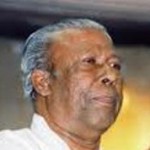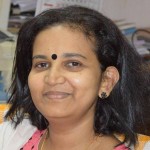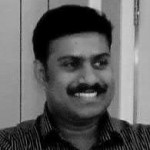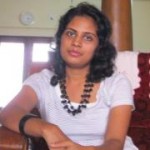 Prof Ninan Koshy
Prof Ninan Koshy
“Free at Last…we are free at Last”, declared Nelson Mandela .It was 2nd May 1994. The ballroom of the Carlton Hotel in Johannesburg was crowded. There were distinguished guests from many parts of the world. They had assembled to celebrate the end of apartheid, the notorious system of oppression of the black people of South Africa. The African National Congress (ANC), led by Mandela had secured a decisive victory in the first free democratic multiracial elections in the history of South Africa. “This is one of the most important moments in the life of our country”, Nelson Mandela said. “You have shown such a calm, patient determination to reclaim this country as your own and now with joy we can proudly proclaim from the rooftops …Free at Last”.
I had the great privilege of being a witness to that historic moment. I was there in a delegation led by Kenneth Kaunda, former President of Zambia, sent by the World Council of Churches, as one of the international observers of the elections.
![]() The speech ended with a wonderful message of reconciliation. “This is a time to heal the old wounds and build a new South Africa”. It was an appeal that surprised many and perhaps one which did not make some of the blacks very happy. But it was this commitment to reconciliation between blacks and whites that laid the foundations of a new South Africa. Mandela who was already a symbol of freedom also became a symbol of national unity.
The speech ended with a wonderful message of reconciliation. “This is a time to heal the old wounds and build a new South Africa”. It was an appeal that surprised many and perhaps one which did not make some of the blacks very happy. But it was this commitment to reconciliation between blacks and whites that laid the foundations of a new South Africa. Mandela who was already a symbol of freedom also became a symbol of national unity.
It was Mandela’s statesmanship and moral authority that averted a civil war, a tragedy that would have cost the lives of millions and continued for long. South Africa’s was a unique colonialism, not the result of foreign occupation and consequent colonial rule. It was settler colonialism which meant that at the end of that colonialism, the whites who were twenty percent of the population had nowhere to go. So it had to be a negotiated revolution.
The world took note of Mandela at the time of the Rivonia trial in 1964. The four hour long speech, he gave on behalf of himself and other defendants, tried for treason was eloquent and powerful. But it was his dedication and commitment to the struggle for the liberation of his people and his readiness to pay any price that made the speech one of the most memorable. He said, “During my lifetime I have dedicated myself to the struggle of the African people. I have cherished the ideal of a democratic and free society in which all persons live in harmony and with equal opportunities” Then he declared from the dock facing death penalty, “It is an ideal which I hope to live for and achieve. But if needs be, it is an ideal for which I am prepared to die”. Mainly because of pressure from the outside, especially from the General Assembly of the United Nations Mandela, was given life imprisonment instead of death sentence. He was in the Robben Island prison for 27 long years.
In early 1980s a slogan was chanted around the world, “Free Nelson Mandela”. Oliver Tambo was then President of the African National Congress and was in Europe. He and his colleagues decided to concentrate on the demand for the release of Mandela as they realized that the struggle could win only with Mandela’s freedom and presence. The demand received wide international support from many nations and ant-apartheid movements around the world. Two governments which steadfastly and in defiance of world public opinion supported the cruel regime of South Africa were those of the USA and Great Britain. To them ANC was a terrorist movement. Margaret Thatcher called Mandela “a dangerous terrorist”. Mandela was in the list of terrorists of the government of the USA till 2008, fourteen years after he became president of South Africa.`
When Mandela declared in the victory celebrations speech “We are Free…Free At Last” he had in my mind the long and arduous walk to freedom. The title of his autobiography is My Long Walk to Freedom. The last sentence in the book qualifies the freedom that South Africa has achieved. “The truth is that we are not yet free we have merely achieved the freedom to be free”.The message is that the struggle continues, for greater freedom and greater justice.
Nelson Mandela is often compared to Mahatma and called the Gandhi of Africa. Mandela considered Gandhi his guru and said that it was Gandhi who started the apartheid movement in South Africa, fighting against racism there. Two other great persons who influenced him were Karl Marx and Jawaharlal Nehru. He always had a socialist-orientation and worked closely with the South African Communist Party. Nehru was a model for him, as the leader of India’s independence movement and then leader of the independent nation.
His was a politics or rather statesmanship of forgiveness. He literally loved his enemies. He knew that when the oppression ends the oppressor also is liberated. His moral authority was very high, almost supreme. It was by that he defeated his opponents and mobilized his followers during critical times.
![]() Mandela’s sacrifice and suffering for the liberation of his country had made him world statesman by the time he came out of the Robben Island prison in February 1990. He came to Geneva on 1st June and was at the World Council of Churches for three days. The WCC was perhaps the most prominent international organization which had supported the liberation from the very beginning. I was Director of the International Affairs Commission of the WCC at that time and I was also in charge of arranging his programmes in Geneva. I had the privilege of meeting and talking to him on several occasions in addition to his formal programmes in the WCC. In conversations he was very cordial, treated all equally. I was struck by his simplicity and humility and the care for people. He had time to enquire about the welfare one’s family. His characteristic sense of humor won all.
Mandela’s sacrifice and suffering for the liberation of his country had made him world statesman by the time he came out of the Robben Island prison in February 1990. He came to Geneva on 1st June and was at the World Council of Churches for three days. The WCC was perhaps the most prominent international organization which had supported the liberation from the very beginning. I was Director of the International Affairs Commission of the WCC at that time and I was also in charge of arranging his programmes in Geneva. I had the privilege of meeting and talking to him on several occasions in addition to his formal programmes in the WCC. In conversations he was very cordial, treated all equally. I was struck by his simplicity and humility and the care for people. He had time to enquire about the welfare one’s family. His characteristic sense of humor won all.
Nelson Mandela will continue to inspire generations to come with his dedication to the cause of freedom and his message of unity, reconciliation and justice. Persons like Mandela appear rarely in history.




